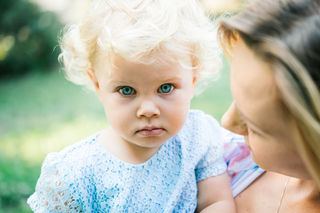Empathy
Why Parents Insist on Giving Their Babies Unusual Names
Commonality is out, and individualism is in. Here's why.
Posted September 28, 2016

Naming a baby is a big decision, one many parents agonize over. There’s so much to consider—what sounds good with your last name, what your family will like (or hate), and even what the name rhymes with (to prevent it from being a playground taunt).
There’s another concern as well: How popular is the name?
In online discussion groups for expectant mothers, many women say they want to choose a unique name: "Different is good," they post, or, "I want him to stand out.” Others dismiss names that are “too popular”: “I don’t want her to be one of three kids with the same name in her class.”
But, in general, today’s parents don’t need to worry much about their children having a common name. In a 2010 paper, my co-authors and I found that the use of "common" names had declined precipitously from the 1950s through 2007, as shown by the Social Security Administration database, which contains the name of every American with a Social Security number (which is nearly everyone). In the 1950s, for example, 25 percent of newborn boys had been given one of the 10 most popular names. By 2007, only 10 percent did. Fitting in went from being desirable to being undesirable, in yet another sign of American culture becoming more focused on the self and less on societal norms.
But then the Great Recession (2008-2010) hit. People started talking about a “cultural reset.” Charitable donations and interest in social issues began to rise, suggesting an increase rise in communalism. But at the same time, further signs of an increase in individualism, such as a continuing rise in positive self-views, also appeared.
And what happened with baby names? In a paper just published, we found that the trend toward unique names continued during the recession, especially for boys. Unique names are more common now than they were 10 years ago. Between 2004 and 2006, 34 percent of boys received a name among the 50 most popular, compared to 30 percent during the 2008-2010 recession years, and 28 percent in the post-recession years of 2011-15. For girls, the decline went from 24 percent to 22 percent to 21 percent. The trend is not due to growing ethnic diversity: It was the same in racially homogenous states such as Maine and Vermont. The pattern also held in California, a large state severely affected by the recession, and in Texas, where the economy was less affected. Over the entire history of the Social Security database, covering births between 1880 and 2015, cyclical economic indicators such as unemployment were not highly related to giving common names.
We argue that the barreling freight train of individualism overwhelmed any effect of the recession. Many of today’s parents are Millennials, born in the 1980s and early 1990s. Some complain that Millennials are unfairly described as selfish and entitled, when they are actually family-oriented and concerned with helping others. In the best data available, neither is exactly true: It’s more accurate to describe Millennials as individualistic (which is why I call them Generation Me). They view themselves more positively, are more supportive of gender and racial equality, and are less empathic, less concerned for others, and less civic-minded than previous generations.
(A note on method: The studies I’ve linked to here use data collected over time, comparing Millennials to GenXers and Boomers when they were young, so these differences must be due to generation or time period and cannot be due to age. Many studies and polls purporting to find generational differences either present data from just one generation—making it impossible to draw a conclusion about how generations differ—or use data from one time, making it difficult to see what’s due to age and what can be attributed to generation. The latter is the method usually used by the otherwise laudable Pew Research Center).
Millennials grew up with the cultural message that standing out is better than fitting in. They became used to hearing that they were special and were advised not to care what others think of them. Despite the overall communal shift of the recession, Millennials remain interested in having their children stand out. So, they give them fewer common names, making it less likely that their sons and daughters will have to “share” a name with a classmate.
This research also shows the hidden power of culture: Over the last few decades, American parents collectively decided not to choose common names for their children. Why something like this happens is a mysterious process—somehow the value of uniqueness has become more prominent. And while know it happened, exactly how and why remains a bit of a mystery. For now, we can take comfort in knowing that our kids will be less likely to be confused with another child who has the same name. It's more likely that they'll be asked, “And how do you spell that?”


